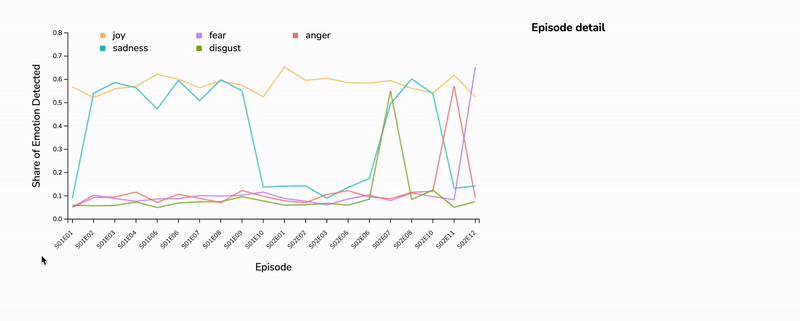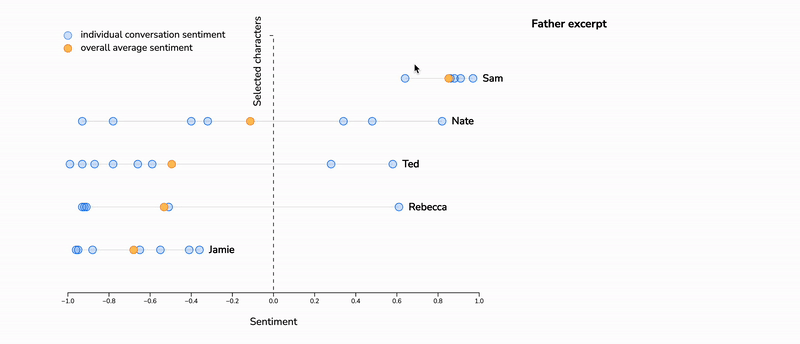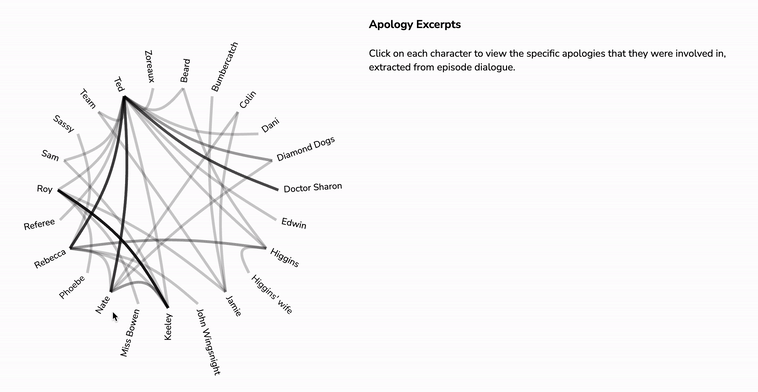Be Curious, Not Judgmental
Breaking down the dialogue behind Apple TV+'s hit series "Ted Lasso"
An interactive visual explainer built using D3.js.

Background
“Ted Lasso” (2020-) is a comedy series centered around an American football coach named Ted who's hired to manage a professional soccer club in England despite having no experience in the beloved sport. While on the surface, the show seems like a goofy series about a fish out of water as Ted navigates a whole new career and culture, “Ted Lasso” has gained critical acclaim in the depth of its writing and the themes it explores, often blurring the lines between comedy and drama. In its freshman season, the show even shattered records for a comedy series, earning 20 Emmy nominations and winning 7 of them.
Though sports series have long been known to lose fan interest quickly — much more so for a sport that's not particularly favored in this country — how did “Ted Lasso” go from a one-time commercial to a fully developed comedy series? I built a visual explainer that explores exactly what makes “Ted Lasso” so moving and so special.
Process
After combing through the scripts from all 22 episodes, I dissected the show's dialogue to reveal trends behind the plot journey and character development throughout the first two seasons. I used IBM Watson's Natural Language Understanding model to help map the dialogue to percentages of sentiments and emotions detected. Using this data, I then created 3 interactive visualizations in total:

Emotional arcs. A line graph of the emotional arcs detected in each episode. Data generated by IBM's Watson NLP Analyzer.

Fathers and sons. A Cleveland plot of sentiments between fathers and sons. Data drawn from every time a character expressed a distinct thought about their dad or had a conversation with him.

Accountability and apology. An edge bundling graph of every apology between main characters with associated excerpts. Here, an apology is define as one that (1) is sincere, (2) is given by a main character for something that they genuinely did wrong (i.e. not just as a courtesy or filler word), and (3) drives plot and/or character development.
Findings
Through this analysis, I uncovered just how “Ted Lasso” manages to go beyond your average sports flick, instead following characters in their growth journeys. They learn to confront past trauma (as seen in the overwhelmingly negative roles some fathers played in their sons’ lives), and they learn to take accountability for their actions (as reflected in the many apologies they make towards those they’ve wronged). While there is still much to be resolved at AFC Richmond, we’ll just have to wait for season 3 and trust that Ted’s philosophy to “be curious, not judgmental” will ultimately rise above.